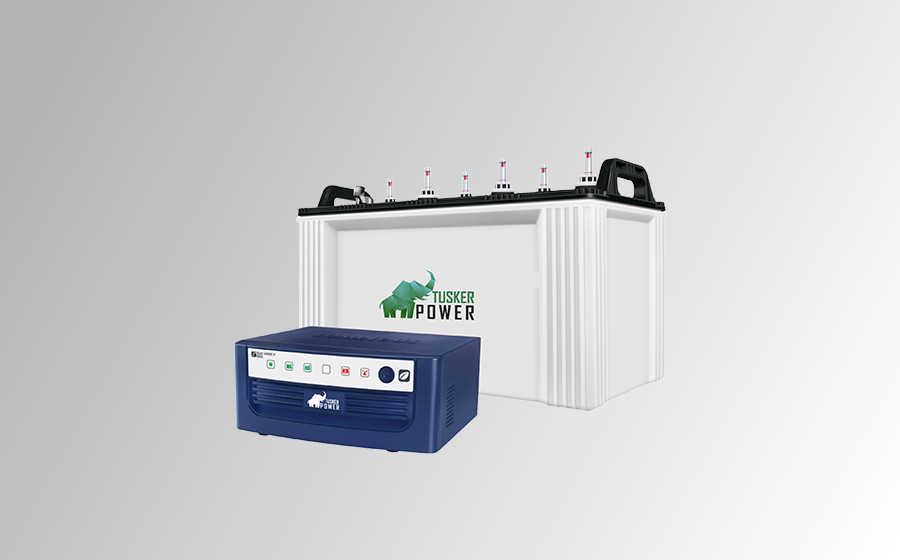
4 Types of Solar Batteries (With Pros and Cons of Each)
Are you shopping for solar batteries? Confused which battery is the right choice for you? Worry not, EuroIndustriel, the leading supplier and distributor of solar batteries in India, has got your back. In this guide, we break down the different types of solar batteries and list the pros and cons of each, helping you make the right choice.
What are the types of solar batteries?

- Lead acid batteries
- Lithium-ion batteries (the most popular choice)
- Nickel Cadmium batteries
- Flow batteries
Each of these solar batteries has its own unique characteristics. Let’s take a closer look at the features, pros and cons of each one.
1. Lead Acid Solar Battery
These batteries are one of the oldest battery technologies. Lead acid solar batteries have been around for centuries, since the starting of the 1800s. Yet, they are still efficient and widely used. Lead acid batteries can be further divided into two sub-types:
- Flooded lead acid solar battery
- Sealed lead acid solar battery
Pros:
- The cheapest solar battery, making them the most cost-effective option.
- The technology has been around for years, making them reliable and efficient.
- These batteries can be easily disposed and recycled without causing any damages to the environment.
Cons:
- They require regular maintenance and proper ventilation for correct operation. Improper maintenance can lead to battery leakages.
- These batteries need to be positioned upright. Hence, they require extra storage space.
- They have low DoD (Depth of Discharge) and need to be charged often.
- They have a short lifespan – usually 5 to 10 years.
Ideal For:
They are best suited for emergency backup storages, in case of a power failure. They also work well with off-grid solar systems.
2. Lithium-ion Solar Battery
Lithium-ion Solar Battery They are the most popular and latest entrant in the battery category. As the demand for electric vehicles rose, lithium-ion solar batteries grew in popularity. Today, they are one of the most widely used solar batteries after lead acid batteries.
Pros:
- Require zero maintenance.
- High battery energy density – they can store more energy in a smaller space, making the battery compact and easy to handle.
- Longer lifecycle – most lithium-ion batteries come with a guaranteed warranty of up to 10 years.
- Higher Depth of Discharge (DoD) – you can use more of the energy stored in the battery, thereby reducing recharge cycles.
Cons:
- Expensive compared to other solar batteries
- They are more prone to catching fire due to thermal runways. However, if the battery is installed properly, then the chances of catching fire is almost zero.
Ideal For:
Commercial solar installations as these batteries can hold more power in a limited space. Also, most of the energy in the battery can be used making them a right choice for domestic and commercial installations.
3. Nickel Cadmium Solar Battery
This battery is not as widely used as lithium-ion and lead-acid batteries. They were invented way back in the 1800s, but became mainstream only in 1980s. They are the preferred battery choice in the aircraft and aerospace industry.
Pros:
- They are extremely durable.
- They can operate at extreme temperatures.
- They don’t require extensive maintenance.
Cons:
- They are extremely toxic. The use of Nickel Cadmium batteries has been banned in several countries.
- They are difficult to dispose of.
- They have a limited ability to hold the stored energy.
Ideal For:
They are best suited for large-scale solar applications like solar parks and other solar infrastructure.
4. Flow Solar Battery
The final type of solar battery is the flow-based batteries. They are an emerging technology in the battery sector. It consists of a water-based electrolyte that flows between two separate tanks. When charged, the electrolyte triggers a chemical reaction that allows energy to be stored in the battery and discharged later. These batteries are a new entrant and slowly gaining popularity in various applications.
Pros:
- They have a 100% DoD (Depth of Discharge) – meaning you can use all the energy stored in the battery without damaging its health.
- The liquid inside the battery is fire retardant – hence there are no thermal runways like in the Nickel-Cadmium battery.
- They have the longest lifespan of all solar batteries – up to 30 years.
- They are extremely low maintenance.
Cons:
- They are much more expensive compared to the other types of solar batteries.
- They have a low storage capacity – hence for large storage they need to be significantly larger.
- The large size and high price make them unsuitable for small solar installations.
Ideal For:
Best suited for large-scale solar installations.
Which is the best solar battery for my project?
It depends on the type and size of your solar project. For small-scale solar installations, you can go for a lithium-ion battery. They occupy lesser space and are highly energy efficient. They also require zero maintenance.
However, if you have a tight budget, then lead-acid solar batteries are the better choice. They provide you with good efficiency for a low cost.
If you are looking for the most efficient solar batteries for a large-scale solar installation, then the newer flow-based solar batteries work better.
If you have any further doubts regarding the types of solar batteries, you can get in touch with EuroIndustriel, the no.1 supplier and distributor of solar batteries in India.















